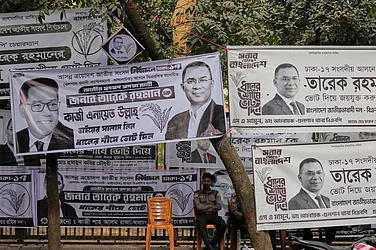In a surprising turn of events, it has been reported that Pakistan earned USD 364 million in an arms deal with two private US companies last year. The deal involved the supply of ammunition to Ukraine in its conflict with Russia. According to the BBC Urdu, a British military cargo plane made a series of trips from Pakistan to Cyprus and then to Romania, delivering arms to Ukraine.
Contrary to these reports, the Pakistani government has consistently denied any involvement in supplying ammunition to Ukraine, maintaining a stance of "strict neutrality" in the dispute between the two countries. The BBC claims to have obtained details of the contract from the American Federal Procurement Data System, stating that Pakistan signed agreements with "Global Military" and "Northrop Grumman" for the sale of 155mm shells in August 2022.
These alleged transactions took place during the rule of the Pakistan Democratic Movement (PDM), a coalition that ousted the Imran Khan-led government through a no-trust vote in April last year. The contracts coincide with a period of heightened tension in the wake of Khan's visit to Russia in February 2022, just before Russian President Vladimir Putin ordered the invasion of Ukraine.
The report suggests that the agreements with the US companies, Global Military and Northrop Grumman, amounting to USD 232 million and USD 131 million respectively, expired in October 2023. The deliveries were purportedly made via a British military cargo plane from the Nur Khan Air Base, landing in Rawalpindi five times.
Despite the BBC's claims and the alleged increase in arms exports, the Pakistani Foreign Office continues to deny any arms sales to Ukraine. The State Bank of Pakistan's data indicating a 3,000 percent increase in arms exports during FY 2022-23 has also been cited by the BBC Urdu as evidence supporting its claims.
Earlier reports had suggested that these secret arms sales to the US played a crucial role in Pakistan securing a bailout from the International Monetary Fund (IMF). The arms sales were seen as a strategic move by Pakistan, involving itself in a conflict it had faced pressure to take sides on. However, the Foreign Office Spokesperson Mumtaz Zahra Baloch rejected these reports as "baseless and fabricated," emphasizing that Pakistan did not provide arms to the US in exchange for support in securing the IMF deal.


























